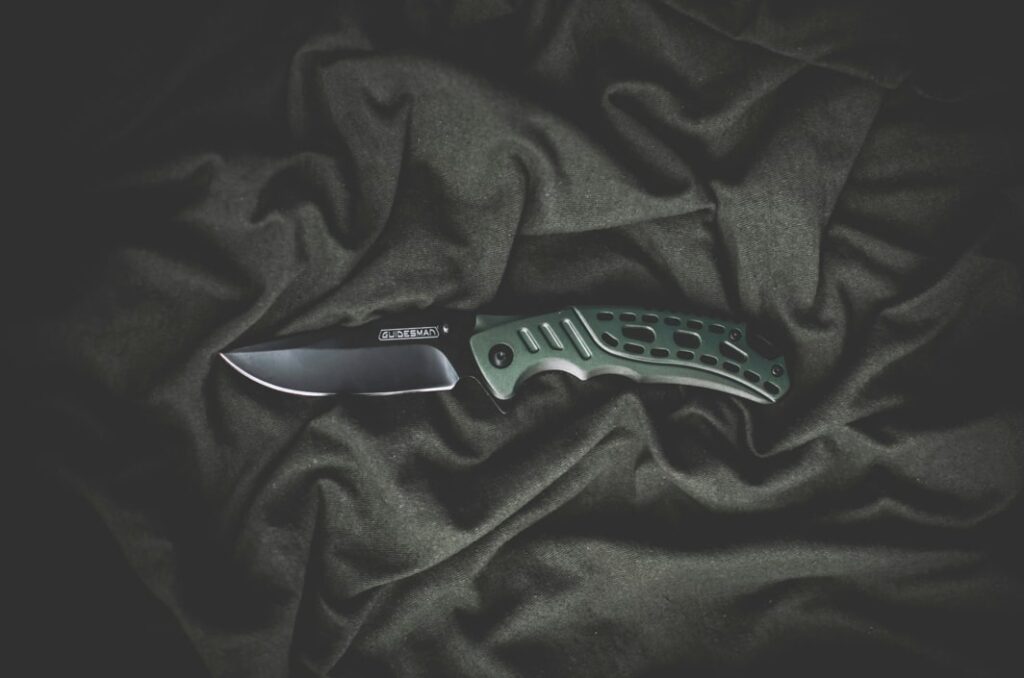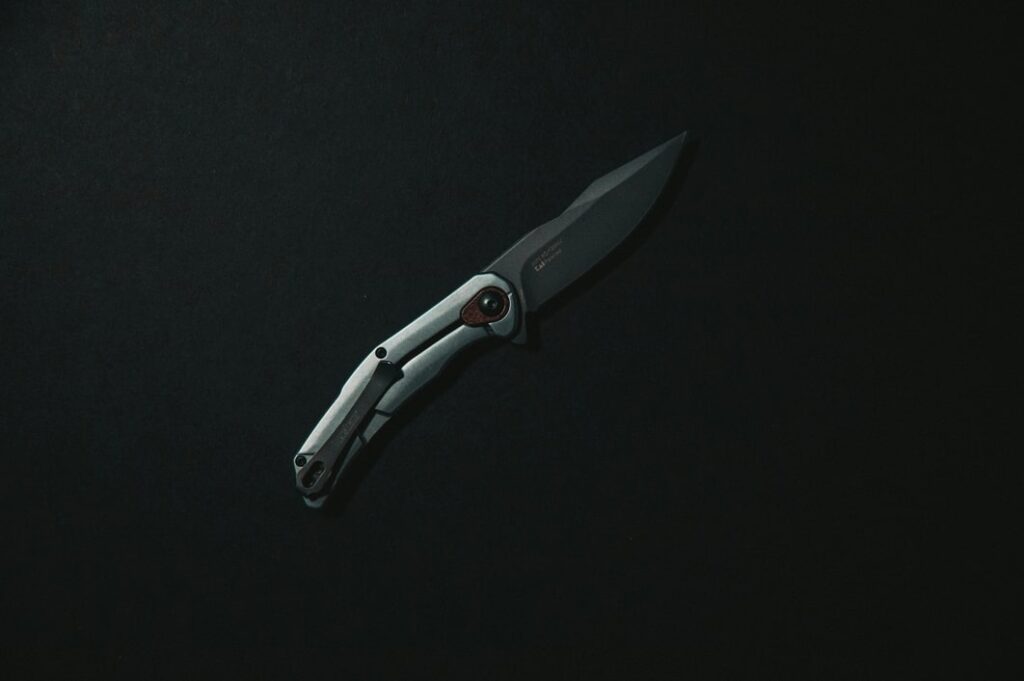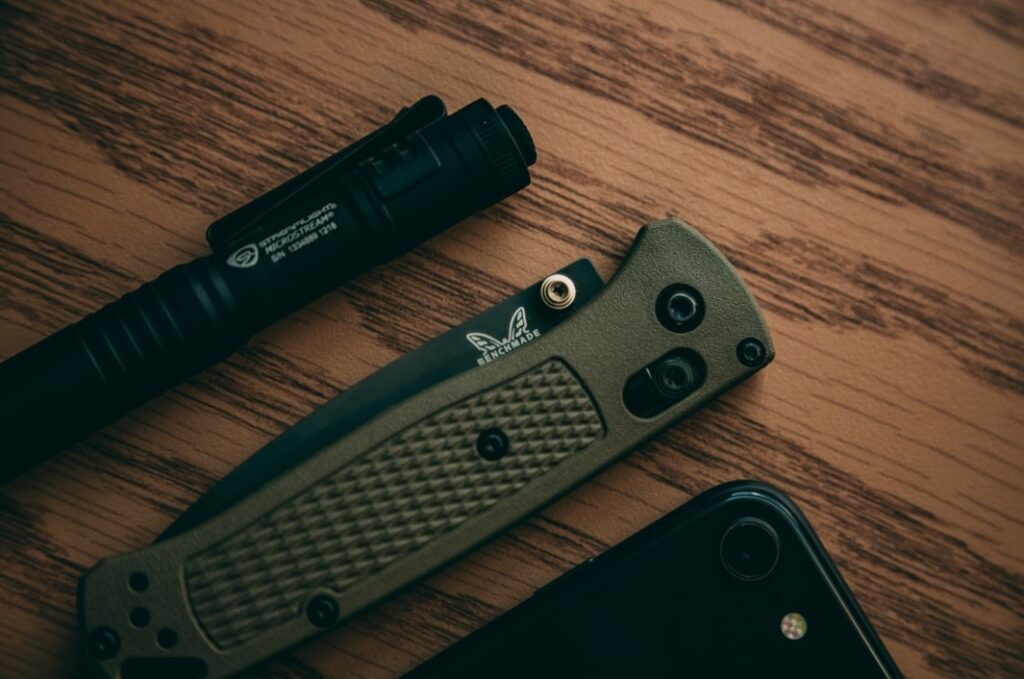In the United States, knife legality is determined by local laws, not federal ones. Before selling or carrying a pocket knife, you must understand the rules of your specific state and city.
Key Factors That Determine Legality:
- Intent of Use: Your reason for carrying the knife can also be a legal factor.
- Location is Everything: Laws vary dramatically between states, cities, and even urban vs. rural areas.
- Blade Length & Mechanism: Many jurisdictions restrict blade length. Certain types, like switchblades and gravity knives, are often illegal.
- Method of Carry: A knife that is legal to carry openly may be illegal if concealed. Check local rules for “open carry” versus “concealed carry.”
- Restricted Places: Carrying knives is almost always prohibited in sensitive locations like schools, government buildings, and public events.
Overview of pocket knives laws in the United States

Knife laws are complicated in that different types of pocket knives have varying legal limitations, which vary by country. In the case of the United States, these limitations also vary by state.
Federal knife laws
At the federal level, regulations primarily focus on the interstate transport of knives. The only federal law regarding automatic knives is known as the Federal Switchblade Act. This act prohibits the distribution, possession, and sale of switchblade knives across state lines, but it does not restrict their possession, manufacturing, or carrying.
State knife laws
The knife laws in the United States vary significantly from one state to another. Each state has the authority to enforce its own regulations regarding knife length, types of knives allowed, and whether you can carry them openly or concealed. Some examples include:
- Alabama: There is no fixed blade length limit, but other restrictions apply.
- California: Carrying knives concealed is prohibited if blade length surpasses 2 inches.
- Texas: Blade length over 5.5 inches is generally restricted.
- New York: Non-automatic knives under 4 inches are generally permissible.
Many states make distinctions between different types of knives—folding, switchblade, butterfly, gravity, etc. In states like Alaska, adults aged 21 and over face fewer restrictions. Whereas in states like Arkansas, you may freely carry a knife as long as it is not with intent to use unlawfully against another person. Understanding state knife laws is crucial because they can largely differ. Always review your state’s legislation to ensure your compliance with local laws and avoid potential legal issues. For more detailed information about state-by-state laws regarding pocket knives, the American Knife & Tool Institute offers comprehensive information.
Start Working with a Professional Now
Pocket knife law by types
Different types of knives are subject to different restrictions. For example, switchblade knives, particularly balisong and gravity knives, are generally much more restricted than manual-opening folding knives. And short fixed-blade knives are mostly permitted compared to folding knives. Certain types are subject to more stringent regulations due to their potential use as weapons and various state-specific cases.
Switchblade knife
Specific switchblade knives like butterfly knives or ballistic knives may have additional constraints or be outright banned in certain jurisdictions. The restriction around switchblade knives originated mainly due to public perception in the 1950s, where such knives were seen as a weapon of choice for gangs and criminals. This led to the federal Switchblade Knife Act of 1958, positioning these knives as devices associated with violence. Over time, some states have updated their laws, but the historic stigma impacts their legality to this day.
Non-switchblade knives
Non-switchblade knives include a vast array of folding knives like manual folding knives and fixed-blade knives such as bowie knives, dirks, and stilettos. The legal definition and regulations can be very particular. For instance, small folding knives are generally legal due to their utility and size, but a bowie knife might be subject to certain constraints, such as blade length limits or carry method.
In some states, a pocket knife blade must be shorter than a specific length to be carried legally without a permit. Knives like machetes, which are classified as tools rather than weapons, generally face fewer restrictions.
Open carry & concealed carry

Open carry and concealed carry refer to the two primary ways individuals can legally carry knives in public spaces.
Open carry involves visibly carrying a pocket knife, where the knife is clearly visible to others. This method allows for quick access to the knife but may draw attention or cause discomfort to some individuals.
Concealed carry, on the other hand, involves carrying the knife in a manner where it is not easily visible to others, such as inside a pocket or sheath. This method offers discretion but may require more time to access the knife when needed.
Laws regarding open and concealed carry of pocket knives vary by jurisdiction. Some areas may allow both methods with certain restrictions, while others may only permit one method or impose specific requirements for each. In most cases, concealed carry faces more restrictions.
Manufacture, sale, and transfer of knives
When it comes to the manufacture, sale, and transfer of knives, specific regulations apply. These rules are established to ensure safety and legal compliance across states.
Manufacturing and sales are consistently subject to the same legal restrictions, often bundled together. The sale and distribution of knives typically face fewer restrictions than carrying one. However, the legality of a transaction can vary depending on the type of knife involved. Once more, this situation varies from state to state.
For instance, in Washington, individuals are prohibited from manufacturing, selling, or disposing of any “spring blade knife.” However, such activities are legal if conducted on a large scale. In Georgia, there is notable freedom in the sale of knives, as there are no prohibited types under state law. Remember to always check your local laws before proceeding with any sale.
Pocket knife laws in other countries
Expanding your market beyond America introduces another layer of complexity. Particularly when it comes to navigating knife laws by country. The legal landscape for knives varies significantly from one country to another. With some nations imposing stringent restrictions. Understanding and complying with these laws is crucial for any business seeking to operate internationally in the knife industry.

Japan
In Japan, knife laws are stringent. It’s illegal to carry knives with blades longer than 6 cm unless for professional or artistic purposes. Combat knives are prohibited regardless of blade length.
Following the 2008 Akihabara Knife Incident, laws were revised, now banning all knife carrying except for lawful activities like work, hunting, or camping. Blade length determines the severity of the offense: over 6 cm violates the gun and sword law, while under is a minor violation. Registration and ownership permits are mandatory for traditional Japanese swords, and daggers and “tanto” styled knives are prohibited post-2008 incident. Other banned knives include bayonets, butterfly, and switchblade knives. Although blade length doesn’t confer a right to carry, carrying alone is usually a minor offense unless used in a criminal act.
Australia
Under the Austrian Arms Act of 1996 (Waffengesetz 1996), it is illegal to purchase, import, possess, or carry weapons disguised as everyday objects, such as sword canes or knives resembling ink pens or belt buckles. However, there are no restrictions on ordinary knives regarding blade length or opening mechanisms.
Some more knives that are considered weapons include switchblade, OTF knives, butterfly knives, gravity knives, and more.
Europe
European countries vary in their approach to knife laws. For instance:
- Belgium allows you to carry a folding knife with a blade length of less than 8.5 cm, provided it’s not intended as a weapon.
- Greece mandates that knives should only be carried for justified reasons, like for use in your profession or for outdoor activities.
Start Working with a Professional Now
Always practice knife law with caution
Navigating the patchwork of knife laws is crucial for your compliance and safety. Stay informed and adapt to local laws to avoid unnecessary legal complications. Your vigilance is the key to enjoying the utility of a pocket knife without the burden of legal concerns.
knife laws may seem mind-boggling at first, but with a clear understanding of the specifics, selling and possessing knives becomes more manageable. Once you’ve grasped the nuances of the regulations, the next natural step is to embark on manufacturing. Look no further than Kegani, a reputable OEM knife manufacturer located in Yangjiang City, China. Our expertise and dedication ensure high-quality products that meet regulatory standards. Contact us today to enhance your arsenal and bring your knife manufacturing endeavors to fruition.

